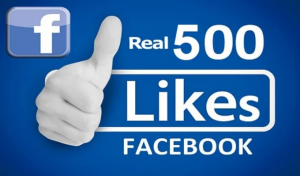5 Ways Your Social Media Accounts Might Hurt Your Job Hunt

In a competitive job market, the smallest detail can give you an edge or eliminate you from consideration. Today, for better or worse, your social media profiles are as much a part of your job application as your cover letter and resume. Anything you’ve made public on Facebook, LinkedIn, Twitter, Instagram, Snapchat, or any other platform is fair game for potential employers who can and will use those sources to decide whether you would be a good fit for their companies.
Social media accounts could hurt your job hunt in several ways. With that thought in mind, make a list of every site or app you use —even if you don’t use them all regularly — and check each one for the red flags below.
Inappropriate Photos :
Take a moment to compare your resume to your LinkedIn account and look for inconsistencies. You should also compare it to the “about me” sections on other sites. If you exaggerated your qualifications on your resume, employers can easily catch you in a lie by digging through your social media profiles.
For example, if you said in an interview that you quit your last job to pursue other interests, but you tweeted about getting fired on the day in question, employers won’t have difficulties figuring out the truth.
Overstated Qualifications :
Take a moment to compare your resume to your LinkedIn account and look for inconsistencies. You should also compare it to the “about me” sections on other sites. If you exaggerated your qualifications on your resume, employers can easily catch you in a lie by digging through your social media profiles.
For example, if you said in an interview that you quit your last job to pursue other interests, but you tweeted about getting fired on the day in question, employers won’t have difficulties figuring out the truth.
Illegal or Immature Behavior :
Most hiring managers will run a background check on job candidates as part of their screening processes. However, employers also realize that a background check will only uncover so much information. Fortunately for them, public social media profiles often fill in the gaps. Photos, posts, and comments that make you seem immature or allude to illegal activity will almost certainly knock you out of the running, even if those comments aren’t recent ones.
Unprofessional Comments :
Think about the articles and memes you’ve liked or shared, and any comments you posted. Discriminatory attitudes will hurt your job prospects, as will rudeness and other unprofessional behavior. Bashing your last job will probably scare future employers away, and you aren’t likely to get a job in a retail or service industry if you publicly mocked customers from past jobs on Twitter.
Poor Communication Skills :
How do you come across in your social media interactions? Do your exchanges seem respectful, or do you often resort to biting sarcasm, name-calling, and swear words? Are your posts free of typos and grammatical errors? Employers will take notice, so make sure your interpersonal and communication skills are up to par.
Once you have removed or hidden any content that might sabotage your job hunt, take the time to replace it with photos, posts, and interactions that will boost your credibility. Share articles related to your career field on Twitter, ask past supervisors and professional contacts to endorse you on LinkedIn, and update your privacy settings on Facebook. Make social media an ally instead of an enemy.






